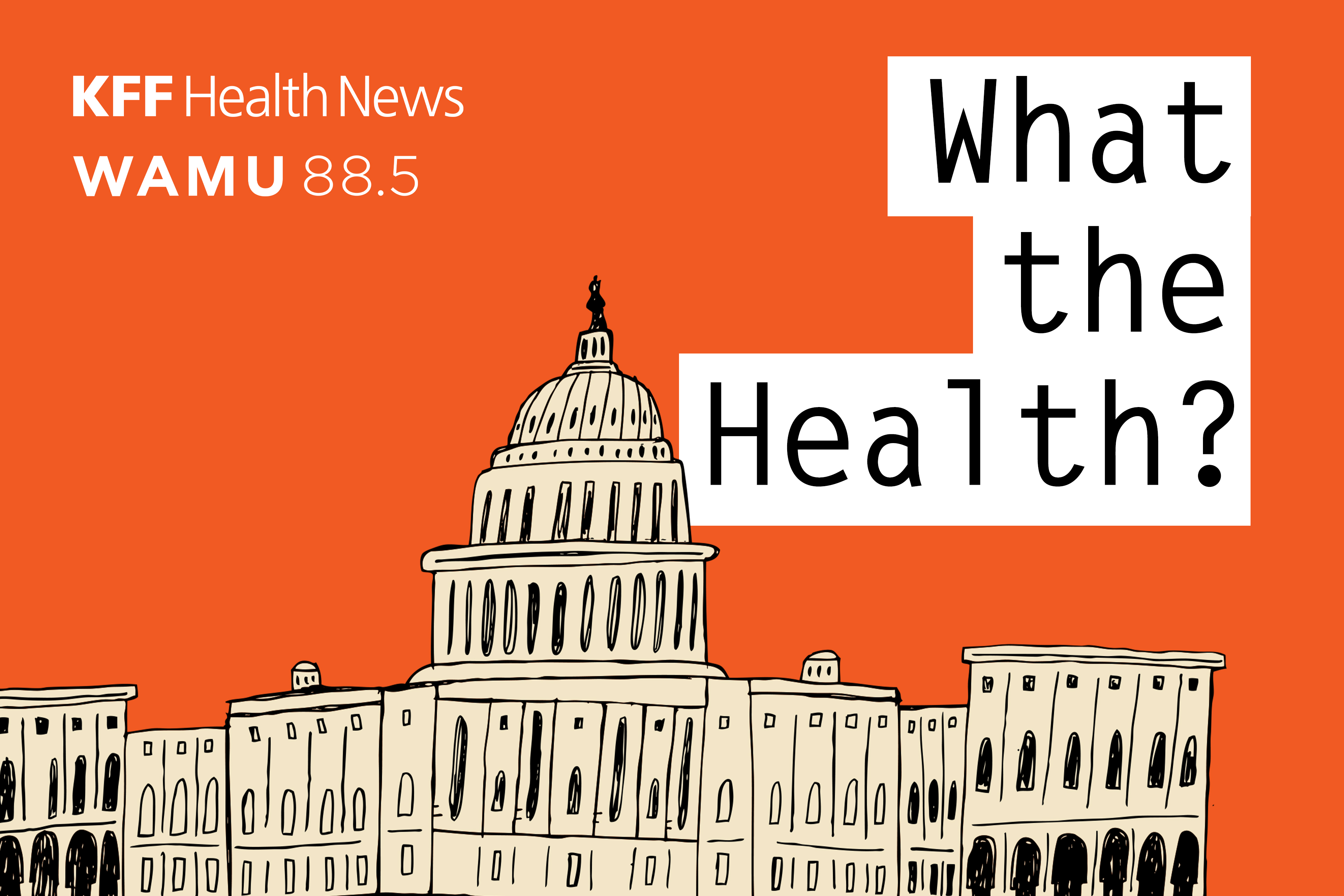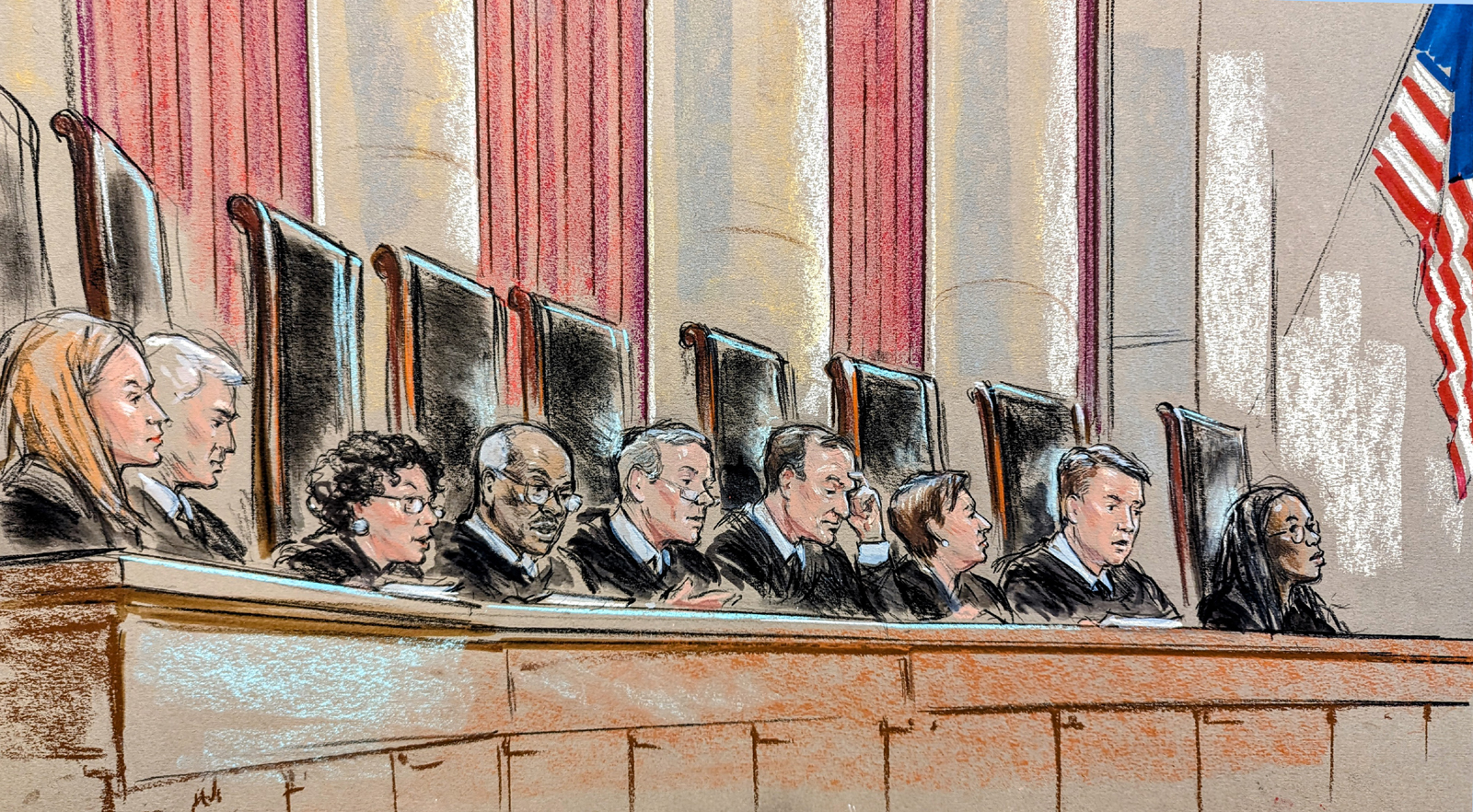Intro. [Recording date: September 3, 2025.]
Russ Roberts: Today is September 3rd, 2025 and my guest is Toby Stuart, the Leo Helzel Chair in Entrepreneurship and Innovation at the Haas School of Business at UC Berkeley [University of California, Berkeley]. Our topic for today is his book Anointed: The Extraordinary Effects of Social Status in a Winner-Take-Most World.
Toby, welcome to EconTalk.
Toby Stuart: Thanks, Russ. Thrilled to be here. Really, really excited for our conversation.
Russ Roberts: Me, too.
1:03
Russ Roberts: What’s the central idea of the book? Why did you call it Anointed?
Toby Stuart: Anointed: I have to say I think I probably called it Anointed because it hearkens back to my Catholic high school–a non-Catholic in Catholic school. But these Biblical references kind of landed with me.
Anointed gets to just the central part of the book, which is this idea about social status, that it moves around. So, it moves from Actor A to Actor B. That is, actors that have high status bestow it upon others. And that happens in the cosmic scheme of things, like anointment in a Biblical sense. Or anointment in modern life: Like, we use that word colloquially, and we use it often to mean some kind of status event that’s more of a rite of passage. So, you graduate from college, or something happens where your status is elevated.
But, it also happens–call it micro-anointment, or something–it happens on a daily basis all the time everywhere. And, the central idea of it is that status moves around; and that transference process–anointments, consecrations, endorsements–are vitally important to the distribution of opportunity.
Russ Roberts: Yeah, you’ve been anointed as a guest on EconTalk. Now, it’s a modest return. It’s a modest investiture. But it’s an interesting way to think about the world. You are, at times, I think somewhat positive toward this concept, but mostly critical of it.
2:59
Russ Roberts: But I want to start with some of the positive benefits, which, you can think of them as the benefits of hierarchy. A different way to think about anointment is there’s some people at the top and they get up–as you suggested a minute ago–more opportunity. They often get more resources. They certainly get more prestige, a non-monetary but very quite important benefit. So, another way to think about this, which you write about, is hierarchy. Hierarchy, despite its non-egalitarian and somewhat negative implications, has some benefits. What are they?
Toby Stuart: Yeah. Let’s just go back to the beginning of that comment. You’re too modest. I’m genuinely delighted to be here. I’ll tell you, I’m doing a bunch of podcasts concurrent with the launch of the book, so I’ve listened to them. And, I started listening to EconTalk, and I think I ended up listening to 10 episodes, or something like that, because I just really enjoyed it–both the interviewer and the interviewee. So actually, I feel like I’m thrilled to be here.
Yeah. So, hierarchy is everywhere. Without kind of mincing words, hierarchies are true, and they exist in pretty much all social scientific disciplines in some form, and they exist in nature in all places. This hierarchical ordering of human beings, or of mammals, or of objects, or of universities–like, we’re a couple of academics talking to one another. Like, talk about a hierarchical world–universities and our obsession with ranking, and faculty, and various forms of rankings. These hierarchies are everywhere.
And when you see something that’s everywhere, it’s generally that there’s a reason for that. And so the book dives into a bunch of the reasons for why hierarchies exist.
But let me make a couple of remarks, and then we can jump into whatever aspect of this seems most interesting. But, one is that: yes, hierarchies form everywhere.
Two is that: one of their central roles is that they tend to dictate how resources are allocated. So, in the animal world, where it all began, hierarchies are dominance hierarchies, and they dictate who gets the two most important resources, which are nourishment and mates. The distribution of those resources is unequal across the dominance hierarchy, just as the distribution of opportunity is unequal across the status hierarchy. And, unequal in a way that probably most of us wouldn’t think is particularly fair if we understood the true origin of that distribution of opportunity. So I think when you’re sensing I’m critical of the status hierarchy, that’s getting into how it impacts who gets what and whether, in fact, it’s a fair way to allocate resources.
Russ Roberts: But, there are positives, which you start with.
Toby Stuart: There are positives. And the positives are it is a way to allocate resources that isn’t we punch one another in the face.
One is–and let’s go all the way back to Leviathan, which we both probably read in graduate school. But, no one likes man in his state of nature without some sort of social organization to keep him in check. And, the dominance hierarchy is a way to do that. If you’re imagining, go back to hunter-gatherer world where we need to exist in social groups to have any chance of survival. We need to work together, we need to build shelter, we need to hunt. We need to create an agricultural system. We need to do whatever we need to do to acquire the resources for survival. Well, to do that, we have to be in a group. And if we’re in a group and we get resources, we then have to figure out how they’re split up.
Without a system–of which a status hierarchy is one–for allocating resources, we just dispute. Like: You think you deserve it, I think I deserve it, she thinks she deserves it. Everybody thinks they deserve it. And we end up literally punching one another in the face back in the old days.
And so, the status hierarchy prevents that; and that’s much of the origin of it.
In the modern world, the book argues it does a whole lot more than that. The other main functions of the status hierarchy are, one, it helps us resolve uncertainty and judgment. So, we rely on it all the time in ways that I think most of us often don’t recognize. We make status-based decisions just intuitively, or reflexively. So it helps us very much in deciding what to do.
And it also is very influential behind every scene, so to speak. That is, when we make choices, particularly in the modern world–let’s get into this as we go on; and I bet you’ve done 50 past episodes that touch on this in one way, shape, or form. But, choice is often near infinite. There’s so much optionality, and there’s so many things, and there’s so many options for what and how you do and what you consume in the modern world. That all has to get curated. The status hierarchy is just this gigantic behind-the-scenes curator of whatever gets in front of you in the first place.
So, allocation of resources, reduction of choice, navigation to a choice–those are three of the key things that it does for us.
9:15
Russ Roberts: So I really found the idea of it’s simplifying choice fascinating. I am not a big fan of the worrisome nature of the so-called paradox of choice. I like lots of choices. But, I don’t want to pretend, when you force me to think about the fact, that–you know, I don’t try everything. I don’t have a perfect system or an algorithm for figuring it out.
You’re talking about books. Obviously, blurbs–quotes from other authors, or so-called experts–count. The question is why is that? You can give some answers. But, a lot of times, a well-blurbed book is awful. There are great books that are un-blurbed, or relatively un-blurbed. So, this is not a small thing that you’re pointing to.
And ironically, perhaps, the past episode that comes to mind first is not what you might have thought, about the paradox of choice or utility maximization. It was actually episodes we did with Cynthia Haven and Jonathan Bi. I’ve forgotten how to pronounce his name, I apologize, that might be right–on Rene Girard and the idea of mimesis: this idea of imitation.
And as an economist, imitation is an appalling idea. We’re supposed to maximize utility, optimize according to the homo economicus. The idea that I would just imitate somebody–copy what they do–is deeply disturbing, both to my natural instincts as an economist, and as my perhaps inflated view of myself as a person with agency.
But, the idea of Anointed is there’s a lot of that laying around influencing me in ways that I probably don’t realize.
Toby Stuart: There’s so much in that question. Yeah. So, again, I’ll go back to the beginning and say, I think, unlike you, I’ve thrown down the white flag. Like, when it comes to choice, don’t give it to me. I want it curated.
So, there is, I think: I think a lot of us spend an enormous amount of time working–this is a little bit beside the topic of the book–but thinking about choices that are irrelevant. And so, if we just made them and got on with it, life would be better for us. I mean, I’m, at the moment, obsessed with the concept of agency, but that’s because of AI [artificial intelligence], and maybe we can come back and talk about that later.
But, yeah: I mean, mimicry. There is so much mimicry. And what happens is if you are high status, it’s nearly guaranteed that many people are going to mimic you, and that mimicry is a form of homage. Like, you’re deeply influenced by somebody or something to the point that you mimic them. And, if you’re like them, the hope is often that there’s some status-based benefit that rubs off on you. Right? I mean, and so, in its own way, conspicuous consumption of any form is a type of mimicry.
Russ Roberts: Yeah, let’s take it to the next level. If I respected a particular person or author and they write a good blurb on a book, I like to think that after reading the book and enjoying it, I think, ‘Wow, I was right to respect that endorsement.’ But, it’s possible that it colors the way I read the book, and I think, ‘Well, if so-and-so liked it, it must be a good book.’ And afterwards, I rave about it even though–again, this is a question of agency and actual autonomy–there is the possibility–I don’t like the idea of it–but there is the possibility that I’m influenced in ways I don’t appreciate.
Toby Stuart: The blurb on the book is this fascinating thing, right? Because it’s just a few words. It tells you very little. Let me ask you this, Russ. How many lousy blurbs have you ever read? How many times have you ever read on a book cover, ‘This is a horrific–this is a terrible book. Don’t open it?’
Russ Roberts: Zero.
Toby Stuart: Yeah. There’s no real information–
Russ Roberts: It’s what we call in economics a selection bias, yeah.
Russ Roberts: We don’t take a random collection of people’s impressions of the book, yeah.
Toby Stuart: And this is true for all reviews, right? And all things. Yelp reviews, I just find so interesting; but let’s leave that for now. So, we’re talking in the economics world, we’re talking about signals, but the signals have one valence, which is positive. So, all you can determine based on a blurb is: Do you recognize the name–the identity–of the person who wrote the blurb? But, if you think about that, we’ve just shifted what constitutes a worthwhile book to how blurbed it is, and who the author is, versus what’s inside of it.
And so books, in your field, you’re going to make sense of. So you will actually be a very good judge of–let’s call quality: Of a book if you read it, not necessarily a universal judge, but from your standpoint, you’re going to come to a judgment and you’re going to feel probably conviction in the judgment. Like, this was a good use of a day, or it was a poor use of the day. You learned something, you thought it was well-written, you thought it was fun, or funny, or compelling in some way, or you didn’t. You’re going to make that judgment.
So, you know, make of them what you will: this is neither of our fields. But, in the process of writing this, I found this–I thought it was a pretty hilarious fMRI [functional Magnetic Resonance Imaging] study–so, functional magnetic resonance. These are the brain imaging studies where neuro-psychologists look inside of brains in a scanner when we’re making decisions and then sort of make attributions about how we feel about things based on what regions of the brain light up, and how they light up as we’re making choices.
So, there’s this one study which I found which kind of gets to what I think we might call the core thought experiment in the book. Which is: They take a bottle of Two Buck Chuck–it’s a really inexpensive wine–and they serve it up to somebody who is going into a scanner. Then they take the same Two Buck Chuck and they put it in a bottle of wine with a label that many people would recognize. So, it’s the same product, literally. It’s Two Buck Chuck, it’s cheap wine in both bottles. But, it turns out, if I give you cheap wine in an expensive bottle and you’re like most of us, you’re going to recognize the label on the bottle; and you’re going to have a different physiological experience to the wine. And you’re going to believe that you liked it more. But you’re not going to like it more because it’s different or better in any way. It’s the same wine, but what you’re responding to is the identity of the logo, and you’re reassessing the identical product based on what the label is on the bottle.
17:01
Russ Roberts: Yeah. I’m somewhat skeptical of those studies, partly because of selection bias, of course. If you showed that most people didn’t love the wine when it was in the fancy bottle any more than they did when it was in the crummy bottle, you wouldn’t get published. There is a little bit of a publication bias there.
But, I think there’s a second question, which is spur of the moment in an experiment, your response is going to be different than if you took it home. This happens supposedly in bars. They re-bottle the cheap Scotch and put it into the fancy bottle, which you can’t observe. It’s done when the bar’s closed. It’s not done in front of you. I’ve always been a little skeptical of that. I have a pretty good palate. I don’t have a world-class palate, I’m sure. But, I’m pretty good at being disappointed in things I paid a lot for, expecting them to be great, and finding out that they’re bad. The same would be true of blurbs that are wildly enthusiastic. But, it’s possible I do that in other areas without realizing it. Maybe I’m unusual in my ability. I’m a bit of a contrarian, which means that I don’t like the whole idea of people telling me what’s good. I have a rebellious streak. So, I’m open to the possibility that there’s more there.
Toby Stuart: Yeah. We can move on. There are hundreds of studies that show this. They’re not fMRI studies, they just show it based on–
Russ Roberts: How they do it with the water–yeah.
Toby Stuart: You could think about the audit studies with resumes as an example of the same thought-experiment, where basically–what I want to say is that there are many of these experiments where you take literally–and this is the way the book opens, with a bunch of different fun stories around this–where you take literally the same object, and then you change the identity of the person associated with it, or the organization, and people completely reassess its value. They’re doing that, but the only thing you’ve changed in the experiment is the identity of the person. Like, whatever product we’re talking about. It’s like the bottle of wine.
I also have to say that someone once told me, and I’ve believed it ever since and repeated it a hundred times: that if you’ve got a Ph.D. and you’re a social scientist, you should consider yourself non-representative of the general population about nearly everything.
Russ Roberts: Fair enough.
Toby Stuart: An economist walks into a grocery store and what happens? Well, whatever happens isn’t what happens when–
Russ Roberts: That’s fair. But, I also want to raise the possibility that I alluded to earlier, which I think is interesting: that you actually have a different experience. It’s not just your brain. You called it a physiological experience. I think that’s very possible. And I think we’re not very sensitive to it, and a book like this makes you at least consider it.
Obviously, a product that’s endorsed by a certain person, you could enjoy it more than if it were not endorsed by that person–a person that you respect, admire, revere. It’s not just that you’re fooling yourself: You might actually have some kind of emotional connection to that endorsement that is, quote, “real.”
But, it doesn’t change your point, which is there’s a lot of power. Obviously, people with name recognition, celebrity status, people who are adulated, obviously can anoint their anointed, and they can anoint others and products, and raise the status of those products.
20:57
Russ Roberts: Let’s talk about the counterpoint. You can respond in a sec.
Toby Stuart: Yeah, yeah. Okay.
Russ Roberts: I want to turn to the worker bee approach, which is an alternative. If you want to respond to that, fine. But, otherwise–
Toby Stuart: No, no, I definitely want to respond to that one. There’s five or six meta-points, or whatever, and you got to one of them. And that is that you actually have a different perception of a product because it’s affiliated in some way. It’s blurbed by somebody you really respect, and it’s a book, and that actually in some way is going to change your perception of the product.
My guess is, for books, that is true for a lot of people. It’s probably not true for you. If you’re not an art aficionado, when you see a painting and then you figure out who the painter is, if it’s some prominent painter you rethink what you’re looking at. You just walked by it, but now you want to return and you want to see it. It isn’t because of the art: it’s because it was created by the artist.
If we go back to wine, there’s a market for empty bottles of the Premier Cru, or whatever, Screaming Eagle, or whatever. Of course, part of that market is just fraud, like somebody’s going to refill it and sell it.
Russ Roberts: Right.
Toby Stuart: Part of the market is, okay, I put in the Two Buck Chuck, but I take it to the restaurant. I have it uncorked and I sit there at the big central table, and there’s this lineup of bottles at the end. What I care about is that–and people do; let me remove the ‘I’ from that comment–but people do. There’s an actual market for these, more so in some cultures than others. It’s the actual affiliation that you get with the high-status product that people are interested in, versus the product per se.
Russ Roberts: Yeah, I would just add the example–which is in a way unrelated, but I think it might be a similar psychological effect–when you buy a souvenir on a vacation, and you buy a coffee mug, or a tea towel, or a keychain that reminds you of a trip; and it’s a pretty cheesy piece of work, the way it’s been made, and you buy it anyway–some people do. Because when they look at it, they get a good feeling. Not because it’s aesthetically pleasing in and of itself, but because it’s tied to that experience, that vacation. I think that’s a real effect. I don’t want to suggest there’s something wrong or fake about it.
Similarly, buying a product that is endorsed by a celebrity–using a tennis racket, or a baseball bat, or some kind of device that’s been recommended or endorsed, literally is signed by–it’s George Foreman’s coffee cup, to mix gourmet metaphors. It has an emotional impact on us that–I don’t think there’s anything wrong with it per se. I don’t think there’s anything irrational, per se, about that. In fact, you could argue it’s kind of a cool thing. I get a little taste of glory that I can’t otherwise have. So, I don’t know if you agree with that?
Toby Stuart: Yeah, I totally agree with it. I’ve long ago left homo economicus in the dust. I have stopped generally comparing things to a rational benchmark, though it’s, like–
Russ Roberts: Hard not to–
Toby Stuart: it’s a fun intellectual exercise to do that. Again, I’ve spent so much time around behavioral economists, and psychologists, and social psychologists that I’m pretty convinced that we’re very much emotional decision-makers.
But, where it becomes a central concept in the book–so, if there is this positive feedback loop–if a product is appreciated more, or admired more, like a painting, because it was created by a prominent, prestigious, anointed artist–then we’re going to end up in this feedback loop where the artist is actually better because they made a good painting, but they made a good painting because they’re a good artist. Right?
So, you actually can end up in these cycles where, because you’re of high repute, what you do is highly regarded. Because it’s highly regarded, you’re of even possibly higher repute, or you at least reinforce your status.
That’s this endogenous dynamic that can happen if we make evaluations based on the prestige of the identity. And we tend to do that more when there’s a lot of ambiguity about how good something is.
Russ Roberts: Yeah.
Toby Stuart: It’s that uncertainty where it’s, like, ‘We’re just not really sure.’ Like, if I buy an Electrolux vacuum cleaner and I take it home and it doesn’t pick up dust, I’m not going to say, ‘I’m going to elevate the status of the brand.’
Russ Roberts: But, Martha Stewart endorsed it!
Toby Stuart: Yeah. Right. So, there are these products–weirdly, there are products where–I sort of get into this a little bit in the book–but if you’re a social scientist, you just wouldn’t expect status dynamics there, but they are anyways. But, as a general rule, the more ambiguity there is about how we think about something–like, a book, or a job candidate who we haven’t met, or a piece of art. I get into this a lot because the other part of my life is I live in tech and entrepreneurship. Outside of my academic role, that’s what I do. I’ve, for 20 years, run entrepreneurship programs at the elite business school. So, a startup is another thing that is nearly impossible to assess at an early stage. That’s one of the ways I got into studying status, was, in the world of tech and science, where I think status dynamics are enormously important.
Okay–you were going to go–to take you back, you were about to go to worker bees.
27:56
Russ Roberts: I’m going to stay on this topic for a minute because you’ve encouraged me to give you a hard time on this. What you’re suggesting, which I think is absolutely true, is that anointment and the role of status and hierarchy is more important in products that don’t have objective measures of quality–art, wine, etc. Is that a good thing?
Let me make the case. There’s a famous story, which I suspect is true, that in his old age and fame, Picasso would go into a restaurant. He’d get the bill, and he would make a doodle on the bill and sign it. That would be his way of paying. Because his doodle was of value, because he’s Pablo Picasso.
Now, I can’t do that. One, I’m an objectively bad artist. But, it’s not–is it a bad thing that Picasso, who you could debate, you could still debate whether he’s any good. There are a lot of people, I’m sure, who hate Picasso’s work. But, many do seem to love it, and I think love it for all kinds of reasons that are real.
The fact that those certain people are given the authority and power to use their blessing–in this case a doodle is more than a blessing, it actually could have monetary value. But, I’m talking about now the fact that Picasso picks a young artist and elevates that person reputationally, which in music, and art, and theater, and all literature, there are all kinds of examples where people emerge from darkness because of the endorsement of a great artist. That seems like a good thing. The reason I would defend it is that those people who have that power usually have passed some kind of test. You could debate it–whether it’s of any value at all because it’s so subjective. But, Picasso is Picasso.
Now, I don’t think I’m totally fooled by the power of his art. And so, is it really surprising or even bad that those people have outsized influence on who else? I mean, it would be sinister if they chose people and then abused them because they had this power over them–that they were bribable and used their endorsement power that way. But, that would degrade their reputation potentially if people didn’t like what they suggested, if you think there’s any agency left. But, anyway, is it really so bad?
Toby Stuart: So–there’s so much in that one. Is it so bad? A lot of the book–I don’t mean to be making normative judgments about these things in the book.
So: Is it so bad? So, I would argue that there are–like, take art. Nearly everyone is an artist. And then, there’s a giant number of professional artists–like, people who would actually claim that art is my profession. I don’t know what the number is, but there’s a giant number of artists. But, there’s a finite amount of wall space at the Metropolitan Museum of Art.
Russ Roberts: Yep.
Toby Stuart: An extremely finite amount of wall space or floor space. So we have these organizations; they’re organizations where people have collectively decided they’ll view art. There’s public art. You can put art anywhere, but there are these places with a very finite resource, which is wall space.
There’s another version of that which comes before the museum, which is there are art galleries. There’s a whole complete pecking order of prestige in the gallery world. And, much of the curation happens long before the museum–it’s what artist does Larry Gagosian decide to put on the walls of his gallery.
I would make a couple of points. One is I think that choice is almost never purely about merit. Second, there is no concept of merit, because if you had 10 gallerists who were all great contemporary art gallerists and you had them look at 100 new artists each, I’m not even sure there would be overlap in which one they chose to put on the wall. So, that’s ex ante: that’s before anything happens. Once Gagosian puts an artist on the wall, it’s game over. Anointment in the art world is getting to the Gagosian wall. If you get to the Gagosian wall, you’re going to probably go slightly downtown to the MoMA’s [Museum of Modern Art] wall eventually because you’ve been anointed by one of the most influential versions of a critic in the business.
But, if I think about it from the standpoint of consumer choice, you and I can have this conversation because we both know exactly who Pablo Picasso is. We wouldn’t even have the conversation if there wasn’t some status process in the art world that decided who we should be looking at, and who we should be talking about, and who we should be having the conversation about. So, this is what I mean when I say there are these status dynamics that sit behind the scenes. There’s a million and one things that happen before you ever got to the museum and saw who was on the wall.
But, my view is: if you reran history–like, take the thought experiment where you just rerun the history of art–that we would, in all times and all cases, end up with different artists on the walls of the MoMA because there wasn’t one objectively greater-than-everybody-else artist. Like, we’ve constructed that story; but there was some other immensely creative Picasso that you’ve never heard of and never will. There were probably dozens of other versions of that. The anointment dynamic didn’t unfold for them, but it did unfold for Pablo.
Is it normatively bad? Like, it’s normatively, in my view, unfair based on most of our–‘fairness’ is a very funny word. Do an episode on that one. I once heard a prominent economist, actually a guy called Michael Jensen–
Russ Roberts: I know Michael.
Toby Stuart: I said something’s unfair, and he said, ‘Yeah, unfair means you don’t like it, and fair means you like it.’ Whatever the definition is of fairness; that’s its own can of worms. But, I think the outcomes that are created by the status process, most of us would look at that and say, well, it’s not exactly fair.
Russ Roberts: It’s a fascinating–I love the thought-experiment. I would just say, about the gallery/art sequence, it reminds me of my experience as an author when I was shopping for agents. At some point, I realized the goal was not to convince the agent that your book was worth it, was quality, or wonderful. It was to convince the agent that an editor would find it worthwhile. Because that’s what an agent does. An agent doesn’t decide what’s a good book: an agent decides what editors think is a good book. It’s a small thing, but I think it’s true.
I also agree that, because of the subjective nature of reputation–we can debate whether this plays out over time in a different way. We recently had the episode on For Whom the Bell Tolls and Hemingway. Hemingway’s reputation went down. It’s doing pretty well, actually. It’s doing better than Theodore Dreiser, just for example. Or other people who, as you point out, we’ve never heard of, who were modest successes in the 1940s and 1950s, say.
But, I don’t find anything sinister about it. I think what we’re talking about, it’s inevitable. It’s not fair. When you told the story about Michael Jensen, who I know a little bit, I thought you were going to say, ‘Economists don’t do fair.’ That’s another standard thing you’ll hear from economists. But, I don’t know whether it’s fair or not. There is an inequity, or an injustice, certainly, in the fact that some wonderfully talented poets, composers, artists, authors don’t make it and others do. But, I don’t find it sinister. Do you?
Toby Stuart: No. No, not at all. In fact, a central point in the book is that the reason we have the status system is it’s[?] functional. We have a curatorial problem. We just talked about art, but we can do the same thing in books. Like, there’s this enormous funnel in all the world. The curatorial problem in books is that there’s also a ton of people who consider themselves writers and have written, or are writing, a book. And so, you have an enormous amount of content, but you actually have a very small amount of shelf space in a physical bookstore.
And we could argue whether Amazon’s any different or not. But the reality of online anything is that if you have, whatever, three million SKUs [Stock Keeping Units], or however many book titles there are on Amazon–it might be more than that–it’s still finite shelf space because you’re going to have to organize the content in a way where people see some of it and not others of it. So, there’s the collaborative filter, and there’s product placements, and all the things that happen when you’re searching online. And so, we need some way to curate things.
Then let’s go to the modern world, which is we’re talking about cultural content; but another form of cultural content is social media. Literally, in the span of time that it takes you and I–we’re both a bit verbose it seems–but the time it takes for you or I to complete a thought, there’s more content that’s been uploaded to TikTok, Instagram, Facebook, Snap, WeChat, whatever is left. There’s more content created in the span of this than I could view in my entire lifetime. Let’s throw YouTube in there. Literally, like, if you did the math on it. In that long-winded thing, hundreds of thousands of videos have been uploaded onto the Internet.
Literally, you can’t imagine. None of us can imagine what these petabytes of data–the amount of content that is. But, we sit down in front of a phone and we’re going to start scrolling. We have to start somewhere. Non-random is probably going to be better than random. Then lying behind that is some status-like process that determines what goes viral and what doesn’t, and what gets your attention.
It’s not sinister in the sense of we need some mechanism to accomplish that feat–to take that super-wide funnel and winnow it down to a consumable version of a choice set. It’s just that most of us just accept the choice set as it’s given to us and don’t really think that much about how it all got there. And, it’s really important, in terms of who gets what opportunities, to understand the process by which it got there.
40:40
Russ Roberts: You have a section on the downside of being anointed, which I found extremely interesting. We had Tim Ferriss on the program recently, and we discussed an essay he wrote–I can’t remember when he wrote it. After he became pretty famous; now he’s more famous. It was basically: be careful what you wish for, because his life has some negatives that I couldn’t imagine. It’s a very, very powerful essay because, when you become famous in the modern era, it has a dark side.
You don’t go into the full range of darkness, but you talk about some of the examples. You talk about impostering, privilege, and less discerning consumers when restaurants get a Michelin star. Talk about some of those.
Toby Stuart: Yeah. Let’s start with the restaurants; that’s a fun one. So, if you’re a foodie, then you definitely pay attention to Michelin ratings. It’s a super-influential rating, and there’s a very small number of restaurants in the world that have stars.
So, you would think if you’re a restaurateur, unambiguously what you want is the Nobel Prize of restaurants, which is the Michelin Three-Star. That’s unambiguously what you want. But, your whole life changes when that happens.
I started to chase down Michelin-starred chefs because, for me–there’s a hundred examples of stuff in the book. They’re the ones I found interesting or fun as I was writing it. So, it turns out, there’s this group of chefs and they literally handed back their stars.
The story that I found I liked the most was this restaurant in Spain where it was a village restaurant where people would come and break bread. Families would eat there and they’d have conversations, and it would be crowded but casual. And then, he started experimenting, did some inventive things with the menu. Michelin comes along and they star it.
Okay, but then when they star it, you then enter–if you’re in this world–one thing is you jump on top of a hamster wheel. Because, the star isn’t, like, you have it forever, and ever, and ever, and ever. If you’re a writer and you won a Pulitzer Prize, you always carry it around. But, the star is one of those versions of anointment where you have to re-earn it every year because the Guide reassesses restaurants.
And if you think about it–I mean, I also spent a lot of time looking into and thinking about the process by which we create rankings and ratings. You are absolutely not going to crack open the U.S. News and World Report: College Rankings every year, if every year Harvard is One, Yale is Two, Princeton is Three, Stanford is Four, MIT [Massachusetts Institute of Technology] is Five, and the University of Chicago is Six. If every year those are the top six, let’s say, it’s uninteresting. Right?
So you have to change the rankings by literally changing the criteria on which you’re going to rank–so you re-sort, or just re-weight–so that the rankings change.
Anyways, if you’re a Michelin-starred chef, one, there’s this enormous amount of pressure to maintain the “quality”–and I’m going to put quality in quotes and come back to that in a second–but maintain the quality that justifies a Michelin star.
But the second thing is: Now, all of a sudden, everything that happens in the restaurant changes, because it goes from people driving in from a 20-kilometer radius, or five-kilometer radius, or whatever–like, coming to the restaurant and seeing friends. You imagine some version of Cheers, but Spanish-village style. But now, it’s, like, people who are foodies who are coming in from wherever because they have to try the food at this Michelin-starred restaurant. So, the audience completely changes to an audience that’s looking for something else. Right? What they want is pictures to put on their Instagram feeds to show the world that they’ve been here, or to consume the experience in some way that’s radically different than the experience that happened before the star. Literally, it’s one of these things where it changes your world.
If you generalize a little bit beyond that, one is there’s a lot of visibility of high-status actors. Think about all the New York Post, and whatever, and Reddit: like, whatever happens, if a celebrity does anything, the world pays attention to it. So, you do lose your privacy, but you’re also constantly on the stage. Managing your brand or your status becomes a 24/7 job, particularly in the social media world. So there are lots of things that change about life if you join the truly anointed set.
The one that I think is most general and most interesting, and that people struggle with the most, is some version of what we now call the imposter syndrome, or some kind of anxiety that you have. Because usually, if you’re high status in whatever your field is, it doesn’t matter: you’re in front of audiences often. And, audiences form very high expectations because they think of you as being great at what you do.
If, in fact, you’re a little less great than your position in the status hierarchy would suggest, the rational response to that–I mean, rational in the sense, the characteristic response that represents the situation you’re in–I’m walking into a room, everybody thinks I’m going to be absolutely amazing; I’m less amazing than they think; I’m going to disappoint people. Therefore, imposter syndrome. Or some version of anxiety.
That is actually the rational response to a world in which the distribution of status is super right-tailed, where you have these very, very prominent actors, but the distribution of merit or talent is less skewed.
Russ Roberts: Yeah, it’s a fascinating example. I think about it a lot. I think about athletes who are in the top tenth of a percent, or whatever it is, of their skillset. They get nervous.
Russ Roberts: For all kinds of reasons. Part of it is simply disappointing their fans.
It’s nice to be anointed in a field where it’s easier to keep quality constant. I would suggest a singer has a certain advantage, but of course singers get colds and their voices aren’t quite what they want, and they have that anxiety I’m sure even without that. So it’s probably a myth that there are some fields where people don’t have imposter syndrome. But, I think when we look at those people, we think, ‘But, they’re so talented,’ or ‘they’re so this or that.’ But, that’s not the way we see ourselves often in those settings. It’s fascinating.
48:42
Russ Roberts: Do you think anointing is less important than it was 50 years ago, and maybe less important than it will be in 50 years because of what I would call the death of expertise? Or is it just that being anointed is more democratic than it used to be? Obviously, there are influencers on Instagram and TikTok who weren’t anointed by anybody. They just caught fire for reasons that have nothing to do with their status ex ante. Now they have some status, they can bestow goodies on folks if they want. I wonder about this. It seems to me the world is a little less hierarchical than it used to be. Do you agree?
Toby Stuart: So, the last statement I unambiguously agree with, in at least a grander historical timeframe. So, let’s come back to 50 years. The last 50 years are really interesting, and the next five are going to be wild, in my opinion; but the last 50 are interesting.
In the grand scheme of things, in the book–we never got back to worker bees. Can I take you back?
Russ Roberts: Yeah, sure.
Toby Stuart: I’m going to take you back there for a minute.
Russ Roberts: Yeah, please.
Toby Stuart: So, in the book, I argue there’s, like, three-and-a-half sources of status. The one that we’re talking about with expertise, and the one that I think most of us just conceptually think of would be a fair source of status, is some version of merit.
Now, merit alone is a problematic idea. So, the idea would be people with a lot of merit who do things that are really good, or really valuable, or really high quality are the ones that should have high status. So, status is a reward for being really, really, really good at something.
Now, the way status works in reality is–we often will think about global status. We’ll have this conversation about a tenth of a tenth of a percent, a thousandth of a percent–the most recognized artist, or the athletes we watch on television, or whatever. But, every social group has a status hierarchy. Your work group in the office does. Weirdly, you go into a yoga class and there’s a status hierarchy. There’s the one who can bend in that way. I long ago gave those up.
But–so, there are status hierarchies everywhere, and what constitutes merit-based contributions to a group is very different across every version of the groups that we have. The ones who have the status–absolutely, it’s given to the people who are the best at doing whatever is valued in that context. So, there are, I think, quality differences among writers and actually, like, the quality of the writing. And that affects, to some extent, the prestige of the writer. And that’s what the book calls worker bee status. You earn it; you work for it.
The second thing is: All societies at all times and all places allocate status differently to what sociologists call ascribed characteristics. The way you think about an ascribed characteristic is: there’s a whole bunch of characteristics that you have that were just–an awkward way to say it–but were assigned to you at birth. You were born into a religion, into a skin color. You were born male or female. You had the SRY [Sex-determining Region Y] gene–or whatever it is–or you didn’t. You were born–you’re probably going to be tall, or you’re going to be short.
So, all the characteristics that were just given to you, you didn’t choose them: You chose none of those. If everything was redone, if there is a you, you would get different characteristics.
But, we order those. Like, they all have status consequences. [More to come, 53:14]





























